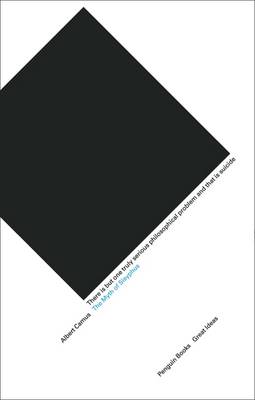“The absurd enlightens me on this point: there is no future. Henceforth this is the reason for my inner freedom.”
Albert Camus, The Myth of Sisyphus (pg.56)
Albert Camus is a French philosopher, author, and journalist. His books were the cornerstones for my research into Existentialism.
From the book, The Myth of Sisyphus,
“It’s absurd” means “it’s impossible” but also: “It’s contradictory”. pg.28
…a man is always a prey to his truths. Once he has admitted them, he cannot free himself from them. One has to pay something. A man who has become conscious of the absurd is for ever bound to it. pg.30
The important thing, as Abbe Galiani said to Mme d Epinay, is not to be cured, but to live with one’s ailments. pg.37
The revolt gives life its value. Spread out over the whole length of a life, it restores it’s majesty to that life. pg.53
Thus the absurd man realizes that he was not really free. pg.56
The absurd enlightens me on this point: there is no future. Henceforth this is the reason for my inner freedom. pg.56
The absurd man thus catches sight of a burning and frigid, transparent and limited universe in which nothing is possible but everything is given, and beyond which all is collapse and nothingness. He can then decide to accept such a universe and draw from it his strength, his refusal to hope, and the unyielding evidence of a life without conclusion. pg.58
But he rejects regret, that other form of hope. pg.70
For the absurd man it is not a matter of explaining and solving, but of experiencing and describing. pg.91
If the descent is thus sometimes performed in sorrow, it can also take place in joy. pg.117
One must imagine Sisyphus happy. pg.119
My conclusion from the book is this :
Life is absurd, we are born with death ever present, how are we suppose to live it? We are never free from the impending death, no one is. We know the end, condemned to the truth. But like Sisyphus we have to be happy otherwise it would be a punishment to live. By being aware of the absurdity of life, we are bound to it, but in this condemnation, we gained inner freedom, the knowledge of the transient nature of our lives.

